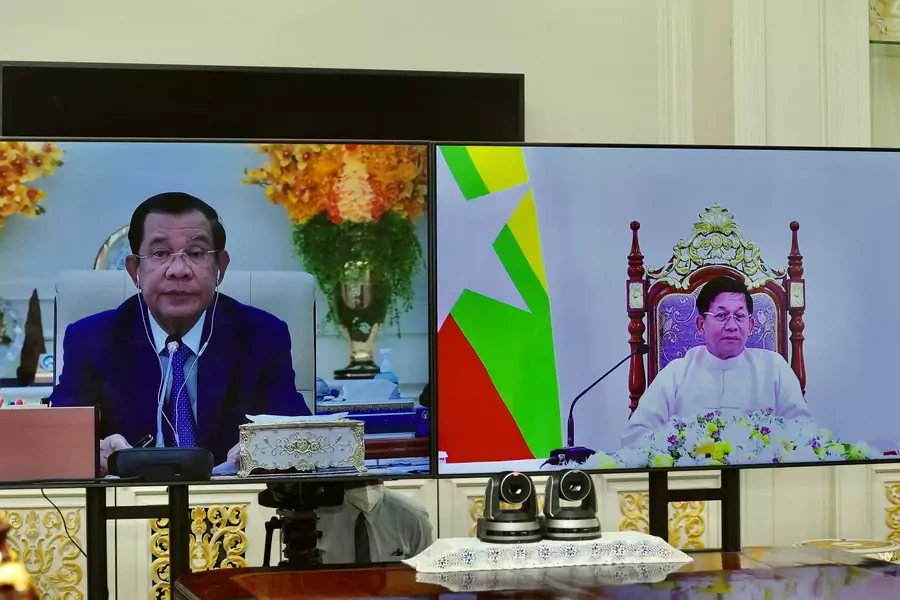ASEAN’s Year of Misery

The Association of Southeast Asian Nations (ASEAN) has never, since its founding, been as strong or united an organization as the European Union, or even in many ways as the African Union, which has shown itself capable (at least in the past) of taking collective action against coups and other breaches of democratic rule, as well as taking collective action in the face of other political crises. But ASEAN, founded on principles of consensus and noninterference in member-states’ affairs, is essentially incapable of making any hard decisions on political matters, a problem thrown into stark relief in the year since Myanmar’s military coup on February 1, 2021. In addition, the region’s growing democratic regression has left few leaders remaining in ASEAN willing to call out autocrats or try to put any pressure on them. The organization still serves an important function in promoting regional economic integration, but as a political entity it is virtually vanishing.
This vanishing act has become painfully clear in the last year. After a few initial tries at talking tough about Myanmar’s coup, such as banning Myanmar’s junta chief from a few meetings last fall, ASEAN has basically reverted to doing nothing about the crisis in Myanmar, which has become a failed state and is in the midst of a civil war characterized by massive brutality by the military and some significant defections from the armed forces, suggesting that the forces opposing the military are getting stronger and a prolonged civil war could be in the cards.
More on:
Cambodian prime minister Hun Sen (Cambodia is this year’s ASEAN chair) seems prepared to normalize the coup and the brutality, and his approach is probably supported by Thailand (ruled by an essentially military-installed government), Laos, Vietnam, and possibly other ASEAN states as well. Indeed, Hun Sen has essentially invited Myanmar’s military leaders to just return to the ASEAN fold, provided they meet laughably easy markers.
As Charles Dunst of CSIS noted in an article in early February:
“Since Myanmar’s military, the Tatmadaw, ousted the quasi-civilian government in a February 2021 coup, the country has been in crisis. And while ASEAN previously barred the junta from attending high-level meetings and invited a non-political representative instead, Hun Sen has actively engaged the Tatmadaw. He even promised that the junta can represent Myanmar at ASEAN meetings if its leaders make some progress, such as allowing humanitarian aid access and a visit by ASEAN’s special envoy, Cambodian foreign minister Prak Sokhonn.”
Such progress would be extremely minor – a visit by an envoy means little if he only meets military leaders and access to aid means little depending on who controls the aid. And yet in the days since Dunst wrote that article Hun Sen seems to have given up on even these modest plans.
As Radio Free Asia reported recently:
More on:
“Hun Sen officially threw in the towel on solving Myanmar’s political crisis Wednesday, as top diplomats from the Association of Southeast Asian Nations (ASEAN) prepare for a retreat at which the junta’s failure to honor its commitments will likely loom large. Only a month and a half into assuming the rotating leadership of ASEAN, Cambodia’s prime minister admitted that Myanmar’s military regime has made no progress in resolving the situation in the country and said it is unlikely to do so during the remainder of his year as chair.”
With Hun Sen and Cambodia at the helm, and likely a year of do-nothing for ASEAN in 2022, expect little from the organization this year. And, as David Hutt notes in a new article for Asia Times (which I will explore in a future blog), ASEAN states, losing trust in the organization, may be giving up on the idea of neutrality and beginning to choose more clearly between the region’s major powers, China and the United States.
 Online Store
Online Store